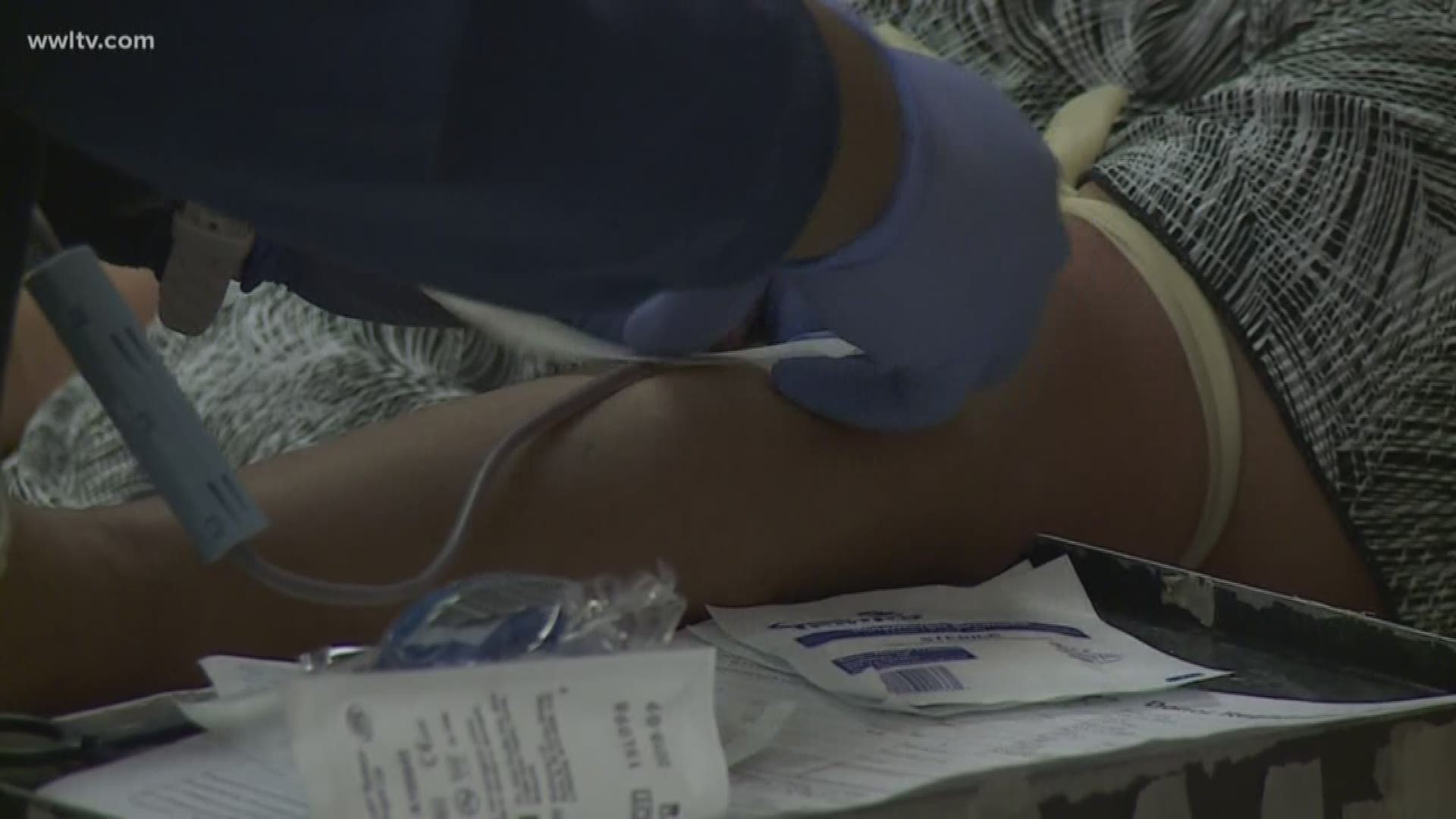SHREVEPORT, La. — People who have recovered from COVID-19 may be able to help those who are seriously ill.
Doctors through LSU Health Shreveport are testing out plasma therapy to give one patient a fighting chance at survival.
David Langston and Kevin Calhoun have both recovered from COVID-19. They tested positive, recovered, and now test negative. That qualifies them for donating their plasma.
Langston was one of the first positive cases in Louisiana.
"I was the first patient in north Louisiana," he said.
He received his positive test result March 11. He is now fully recovered and feeling great, especially since he may be the saving grace for someone else.
"If there's a silver lining behind me getting this — if me getting this is going to help somebody else that can't get over it as easily, I would do it again," Langston said.
Langston and Calhoun were asked if they'd want to donate their plasma for a critical patient with a severe case of COVID-19 in Shreveport. Doctors believed Langston and Calhoun may have antibodies to help this patient fight the virus. It was an easy 'yes' for both of them.
"There's a lot of people praying, and I really hope this works," said Langston who is eager to see results on the critical patient. "Oh yea, I'm anxious."
They donated Saturday. A plasma donation is similar to a regular blood donation but takes around 40 minutes. That same day, their plasma was given to the patient at Ochsner LSU Health Shreveport.
It's the first Convalescent Plasma Therapy provided to a COVID-19 patient in Louisiana.
Dr. Chris Kevil, Vice Chancellor for Research at LSU Health Shreveport said patients who tested positive for the virus, get better and test negative later develop an immune response.
"They've developed an immune response, and then they can donate plasma," Dr. Kevil said. "What's unique about that is their antibodies can be transferred to someone who is really sick and those antibodies from the donor can help attack the virus."
Dr. Kevil explains this is an investigative therapy.
"I think it will give the patient a real fighting chance, to be honest with you," he said. "It's difficult to say whether it will help. This is still what we call clinical research."
Donors must be people who have recovered from COVID-19 for at least two weeks. Because Langston had the virus so early, he was the perfect candidate. Dr. Kevil said some blood centers are taking donors now and more hospitals are looking into this.
"I do know the word is getting out there," he said.
He said it'll take a few days to see how the critical patient responds. If they're doing better, they'll get another dose from the plasma donation. It's promising, but still not proven to be effective. Langston is hopeful.
"It's all that's on my mind right now because I want this man to live," Langston said.
Dr. Kevil explains this is only for those very critically ill patients. He recommends talking to your doctor about it if your family member is one of those patients.
► Get breaking news from your neighborhood delivered directly to you by downloading the FREE WWL-TV News app now in the IOS App Store or Google Play.

